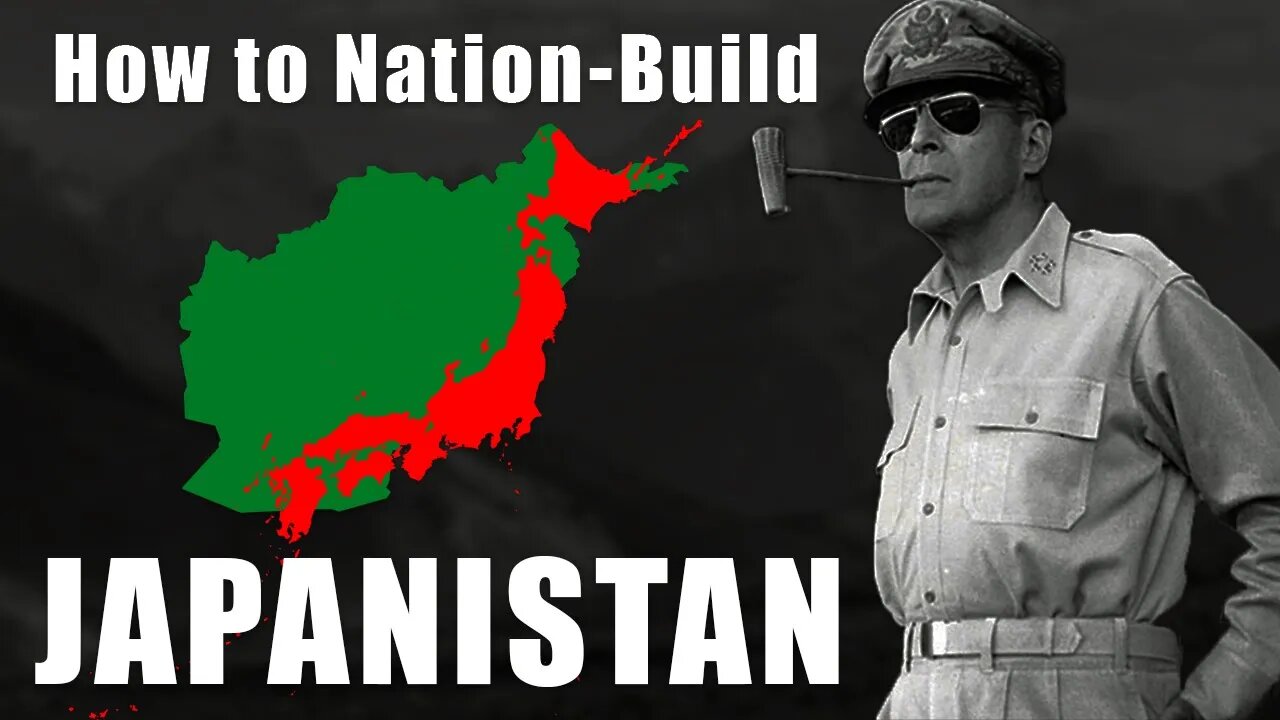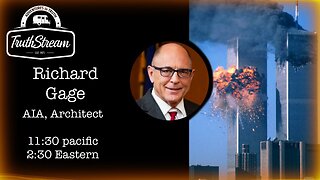Premium Only Content

Afghanistan vs Japan: How to Nation-Build Like a Shogun
On September 20th, 2001, President Bush demanded the Taliban government to “close the terrorist training camps and hand over leaders of the al-Qaida network.”
A few weeks later, President Bush updated the nation, “None of these demands were met. And now, the Taliban will pay a price.”
Bush then specified how he’d make them pay,
"On my orders, the United States military has begun strikes against al-Qaida terrorist training camps and military installations of the Taliban regime in Afghanistan. These carefully targeted actions are designed to disrupt the use of Afghanistan as a terrorist base of operations and to attack the military capability of the Taliban regime."
He went on to say that with “the collective will of the world” we will “bring [al-Qaeda] to justice.”
Over time though the purpose of this “conflict,” as it was sold to the American people, morphed into regime-change and then democracy-building.
By December 17th, 2001, the Taliban had been removed from power, but most of al-Qaeda and the Taliban had retreated into the mountains and Pakistan so it was argued that to keep them out of power was to build Afghanistan into a democracy.
The United States is committed to helping build a stable and democratic Afghanistan that is free from terror and no longer harbors threats to our security. — Colin Powell, The President’s Budget Request for 2005
The survival of liberty in our land increasingly depends on the success of liberty in other lands. The best hope for peace in our world is the expansion of freedom in all the world. America’s vital interests and our deepest beliefs are now one. — George W. Bush, Second Inaugural Address
It was a noble goal.
The Bush administration could’ve easily propped up a competent enough pro-American dictator to keep out our enemies as the U.S. government had done numerous times in the past. It would’ve cost us much less money and lives, but the Bush administration felt a moral responsibility to leave the country better than how we found it and argued that democracy was our best long-term defense against terrorism.
After all, in the aftermath of 9/11, the war was initiated as a sort of quasi moral crusade. If we propped up a dictator then it would’ve trivialized the tragedy and provided additional fodder to the terrorist argument that the west is evil.
By turning Afghanistan and then Iraq into thriving secular democracies and then defeating the “Axis of Evil,” 9/11 would’ve been even more impactful and meaningful. Fire turned to freedom.
Despite conspiracy theories about oil, any reading of George W. Bush’s life shows that for better or worse he was heavily driven by moral meaning. After all, the born-again Christian campaigned as a “compassionate conservative.”
But the Bush administration vastly underestimated the difficulty of democratizing the region and, I’d argue, wasn’t willing to pay the price to succeed.
I believe the U.S. government could’ve succeeded if we responded to the deadliest terrorist attack in American history similar to how we responded to the deadliest military attack in American history.
Nuked em!
Just kidding. But if we are going to nation-build in Afghanistan then we should’ve done it similar to have we did it in Japan.
First, it begins with an official acknowledgment of our main objectives.
On September 6th, 1945, US President Truman approved a document titled “US Initial Post-Surrender Policy for Japan,” which set the two main objectives for the occupation: eliminating Japan’s war potential and “turning Japan into a democratic nation with a pro-United Nations orientation.”
And then it’s about appointing a competent quasi-absolute ruler over the country.
President Truman appointed General Douglas MacArthur as Supreme Commander for the Allied Powers (SCAP) who served as the interim leader of Japan from 1945 until 1948, aka “America’s Emperor of Japan” or as the Japanese would later honor him, “The Last Shogun.”
American biographer William Manchester argued that without MacArthur’s leadership, Japan wouldn’t have been able to make the move from an imperial, totalitarian state, to a democracy.
And then it’s about winning the “hearts and minds.”
Hearts
SCAP’s first priority was to set up a food distribution network because, following the wholesale destruction of most major cities, most of the population was starving.
SCAP imposed a major land reform where the government purchased from landowners 4,700,000 acres. By 1950, 89% of all agricultural land was owner-operated and only 11% was tenet-operated.
Minds
SCAP controversially preserved the God-Emperor but reduced his status. At SCAP’s insistence, Hirohito publicly renounced his divinity...
Read Full Article at www.AnthonyGalli.com.
-
 8:11
8:11
Anthony Galli
1 year agoHow to Stop Earmarks
45 -
 0:54
0:54
RealAmericasVoice
3 years agoLeft in Afghanistan
971 -
 19:26
19:26
GritsGG
1 day agoChat Picked My Hair Color! All Pink Loadout & Operator Challenge!
14.3K3 -
 10:32
10:32
Nikko Ortiz
1 day agoFunniest Fails Of The Month
49.2K6 -
 1:27:34
1:27:34
TruthStream with Joe and Scott
4 days agoArchitect Richard Gage: 911 truths and more #482
20.7K6 -
 LIVE
LIVE
Lofi Girl
2 years agoSynthwave Radio 🌌 - beats to chill/game to
705 watching -
 56:48
56:48
The HotSeat
12 hours agoI'm NOT Sorry! Guns Aren’t the Problem—Godless Culture Is
26.1K29 -
 9:43
9:43
The Pascal Show
13 hours ago $0.05 earnedWHOA! Annunciation School Sh**ter Identified... Heartbreaking & Insane
1122 -
 22:42
22:42
Liberty Hangout
7 hours agoCollege Democrats Say Gangs Are GOOD!
47.3K58 -
 2:14:50
2:14:50
Badlands Media
13 hours agoBadlands Media Fantasy Football Live Draft
40.2K